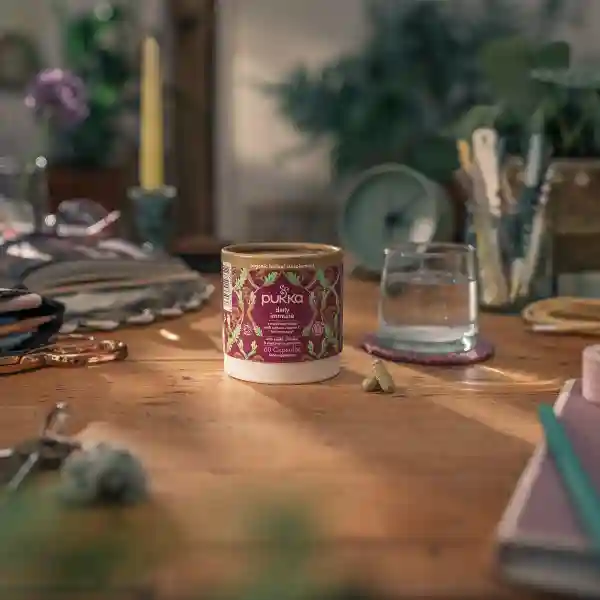

Not all Vitamin C is created equal
Often during the colder months, or after burning the candle at both ends during the long summer days our immunity can take a bit of a bashing. With this in mind, it is worth looking at ways to sneak in a little more vitamin C into our diet to bolster our immunity. Our herbal experts have been taking a look at vitamin C benefits and vitamin C sources.
So, why is there so much interest in vitamin C?
Vitamin C is responsible for hundreds of processes within our body, some are minor and others crucial. For example, vitamin C is used by our body to make proteins which are the building blocks for many of our tissues and organs. Collagen, which is responsible for the formation of parts of our bones, muscles, cartilage and skin, is made using vitamin C.
Vitamin C also plays an important part in our immune function by improving the activity of some white blood cells such as ‘natural killer cells’ and also allowing our immune system to communicate and coordinate its attack against invaders (Wintergerst, 2006). Another important function is allowing us to properly absorb the type of iron found in plant-based foods (Gershoff, 1993).
Does it really matter where our Vitamin C comes from?
The Department of Health recommends that our vitamins are best absorbed from our diet but this is not always possible. In the last 50 years, nutrient levels in the soil and our diet have plummeted and nutritional deficiencies are common in our well-fed but nutrient-poor society. There are also times, such as when we are ill or overly taxed, when we may need to boost our levels of vitamin intake with supplements.
Vitamin C supplements may be either synthetically manufactured or taken in their natural form. Those in natural form are as close as we can get to the state they would be found in dietary sources, such as fruits and vegetables. We know that natural forms of vitamin C last longer in the body than synthetic vitamin C (Uchida et al., 2011) and that it is more bioavailable in both blood and liver (Vinson et al. 1989).
One of the reasons we see this disparity is because artificial ascorbic acid has a shorter half-life within the body, only staying in its full and effective form for about two hours. Natural vitamin C, on the other hand, seems to last much longer in the body and is absorbed more slowly, therefore remaining available to our cells for considerably longer.
Why choose Pukka Herbs’ Natural Vitamin C?
is a whole fruit concentrate made from organic acerola and amla fruits. The concentrate is then bound with various flavonoids and other natural compounds from rosehips, lemon peel, bilberries and black pepper.
These compounds help with the absorption of Pukka’s Natural Vitamin C into the bloodstream so it may be readily used by the body for all the important functions we mentioned above.
